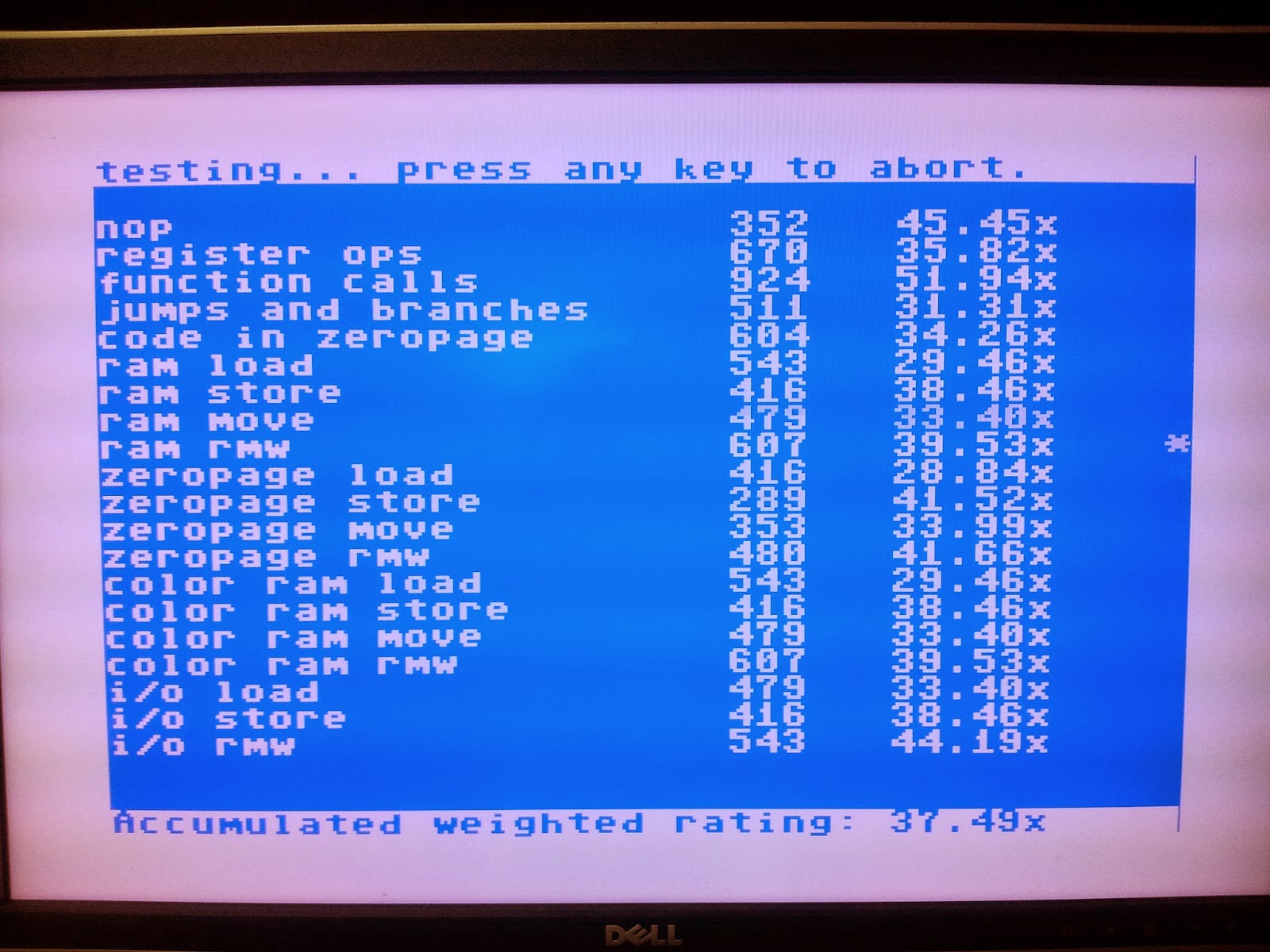Thanks to the folks on #c-64, I found out about the synthmark64 benchmark program and summary.
Interesting to read through. As can be seen, things like the SuperCPU and Chameleon are both around 20x faster than a stock C64, provided you don't touch IO.
I managed to get synthmark64 running on the C65GS in C64 mode, although not without some weird fiddling with the serial monitor to get it unstuck. [Update: found the problem. I had left a CPU breakpoint enabled, which synthmark was triggering. Cleaning that up lets it run properly without fiddling].
Once unstuck, all the tests run through repeatedly without further intervention.
This means I have a synthmark64 speed rating for the C65GS as it stands, before I optimise the CPU, which will allow me to properly evaluate the utility of the improvements I make.
[Update: Here is a screenshot after I fixed the CIA timer bug that was causing the display to show 37x instead of 18x, as discussed further down]
 |
| Display showing correct speed up after I fixed the CIA timer bug. |
Nonetheless, this means the machine is already about as fast as the Chameleon or SuperCPU for most operations, despite the dreadful 2-cycles-per-byte-of-instruction decoder it is currently using. And for IO operations it is much, much faster.
 |
| Don't forget to halve these values for real comparison, because a CIA clock bug makes the machine look 2x faster than it is! |
The obvious thing to see here is that the C65GS doesn't slow down when it hits I/O, because the I/O all runs at 48MHz instead of 1MHz like on a real C64.
It is also interesting to see that the C65GS has a relatively fast JSR compared with the others. This is probably because JSR causes three pushes to the stack, which are writes, and so don't incur any wait-states.
More on this as I implement the various improvements, and also get around to fixing that CIA clock bug.

No comments:
Post a Comment